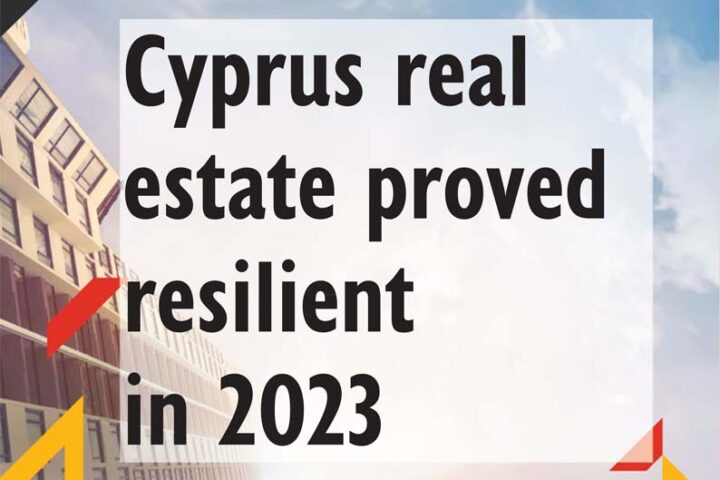Owning a home is fast becoming a nightmare for investors in Cyprus, especially young couples yearning for their first home, as the interest rate on housing loans has surged past the 5% mark, setting a decade-long record, according to Central Bank of Cyprus data.
Despite the European Central Bank applying the brakes since September 2023, fixing the rate for loans for household purchase at 4.05%, Cypriot banks persist in raising interest rates, putting additional strain on households.
Worldwide inflation accelerated higher much faster than anyone expected last year and it could well overshoot on the way down too, forcing central banks to cut rates much faster than currently expected.
“Not only are markets now fully pricing 150 basis points of cuts at the Federal Reserve this year, with other central banks to follow, they’re also pricing in a greater than 50% chance of 175, with the first heavily backed to come in March,” said Craig Erlam, Senior Market Analyst, UK & EMEA at OANDA.
Central Bank figures reveal that the average interest rate on new home loans in Cyprus has reached 5.04%, compared to 2.15% in January 2022.
In essence, this marks a 134.4% increase, or 289 basis points, over two years, translating to a financial setback of two and a half average salaries for households aspiring to secure their dream homes through Cypriot banks.
With 56% of workers earning gross incomes below €1,750 per month, the real impact of this increase becomes clear.
For a loan of €150,000, the rise leads to additional monthly charges of €361.25 or €4,335 annually, equating to two and a half monthly salaries for most employees.
Existing borrowers with non-fixed interest rate loans also face a significant burden.
For a €150,000 loan with a repayment schedule exceeding five years, the interest rate has risen to 4.36%, up from 2.04% in January 2022, marking a 113.7% increase or 232 basis points.
Extra charges
This results in extra charges of €290 per month or €3,480 per year.
Furthermore, interest rates on loans with repayment schedules between 1-5 years have risen by 142.2%, while for loans with a repayment schedule of less than one year, the increase is 102.6%.
Perhaps, the high cost of borrowing is the reason behind the steady decline in household loans in Cyprus, retreating from €12.11 bln in the third quarter of 2022 to €11.13 bln in Q3 2023, according to Sapienta Economics.
Meanwhile, property prices in Cyprus are reverting to pre-2013 levels, having experienced a significant surge in recent years.
Central Bank data indicates that the housing price index for the third quarter of 2023 stands at 91.4 points, approaching the 2012 level of 91.2, after dipping to 89.4 in the second quarter of 2023.
This signifies a return to levels seen 11 years ago, although the highest point was recorded in the third quarter of 2008 at 107.3 points.
The property price index has recovered a considerable portion of the losses incurred during the fiscal and banking crisis, now exceeding the 2006 low point by 24.5%.
The economic crisis post-2013 led to reductions in property prices, with the housing price index dropping to 77.8 points in 2014 and further decreasing to 74.4 and 73.4, respectively, in 2013 and 2014.
The stabilisation of new home supply, improvements in income categories, and increased demand from abroad have contributed to a significant price increase, fuelling a revival in construction activity.
However, the sharp rise in new property prices is largely attributed to the revaluation of construction raw materials, raising construction costs in conjunction with heightened demand from both domestic and foreign buyers.










